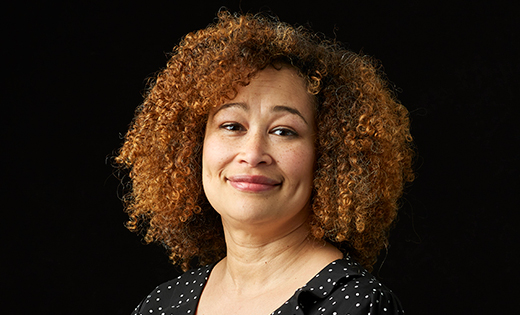Principal Fellow Case Study
Louise Banahene MBE
Meet one of our Principal Fellows at Leeds, Louise Banahene MBE. Louise was awarded Principal Fellowship of the Higher Education Academy (D4) in 2022 in recognition of her leadership and contribution to learning and teaching in higher education.

Louise’s role at Leeds
As Director of Educational Engagement at Leeds, Louise is responsible for access and student success including leadership of strategies. Her remit includes educational partnerships, outreach, contextual admissions, continuation and degree awarding gaps. It necessitates a whole-institution approach and therefore teaching and learning is central to this. The work of Louise and her team has an enormous, positive impact on individuals, the institution and the HE sector, by helping to minimise the barriers to access and student success.
Louise works regionally and nationally, including being the institutional strategic lead for Go Higher West Yorkshire and Chair of a National Postgraduate Diversity Group, leading on sector-wide projects including development of strategy and trials of approaches to contextual admissions at postgraduate taught and research level. She also sits on the expert panel for the UKRI/OfS funding call for increasing diversity in postgraduate research.
Louise holds a number of voluntary roles including trustee for an academy trust, Tutor Trust and AccessEd. Throughout her career, she has focused on engagement and inclusion. Louise received recognition for this commitment when she was awarded an MBE for services to higher education.
The journey to becoming a Principal Fellow
When a colleague suggested I apply for a PFHEA, I have to admit that I was surprised. It wasn’t something I had considered. I knew that Principal Fellowship status would be challenging to achieve and I wasn’t aware of examples of colleagues who work on access and student success who had been awarded it.
However, Advance HE offer a very helpful reflective questionnaire called the AHE Fellowship Category Tool, this enables you to test the extent to which your work matches the different levels of fellowship. Completing the questionnaire confirmed that there was very close alignment with my role and outputs and when I read the guidance, I could see that it would be a very beneficial process.
I found it very valuable to consciously make time to review my work against the criteria. It's something that can be tricky alongside everything else, but it really gave me the space to note down all the great examples I had and to sift through to identify the best. The sifting and refinement requires self-evaluation and evidence and that brought a personal benefit to really see the impact my leadership had had.
During the application process I often had a flurry of activity and then a period where I had to leave it to one side for a while. Sometimes that was useful to provide space and to be able to look at it with a fresh pair of eyes. Other times, however, it was like starting from square one!
One of the positives that came from the timeframe in which I worked on my submission is that it really reinforced not just how important excellence in teaching and learning was to me and the way in which I contribute to it, but also my deep commitment to supporting others in this space. The latter was something I had always done but not always explicitly articulated, gathering the evidence of this helped me develop this approach even further.
Nevertheless, I found it beneficial to write up the application and gather the evidence and I am grateful for the guidance from colleagues, including those in OD&PL, who reviewed my drafts.
What would you say are the benefits of Principal Fellowship?
I think one of the many benefits has been that it has really reinforced the value that the fellowship can have not just for me but also for my colleagues who may also feel that this isn’t something that they could do too. I hope to be able to support and enable others to apply and I’m looking forward to doing this.
Do you have any tips for others thinking about applying for Principal Fellowship?
My advice would be to go for it! It’s a lengthy but rewarding process. I attended an introductory session with AdvanceHE and that was really helpful for giving me the impetus to get started on it. I also found that it’s so much harder to make meaningful changes to your drafts if you are only able to grab an hour here or there. I made the most progress on those two or three occasions where I dedicated more significant time to it.
What are the next steps you have in mind now that you have achieved Principal Fellowship?
I would love to find more opportunities to share work and research as well as continuing to support others.
Advance HE Blog
If you would like to hear more how Louise's work in outreach fits with Principal Fellowship, read Louise's blog featured on the Advance HE website.
Applying for PFHEA
If you would like to find out more about PFHEA including how to apply and the support available from OD&PL please visit our PFHEA webpage.
